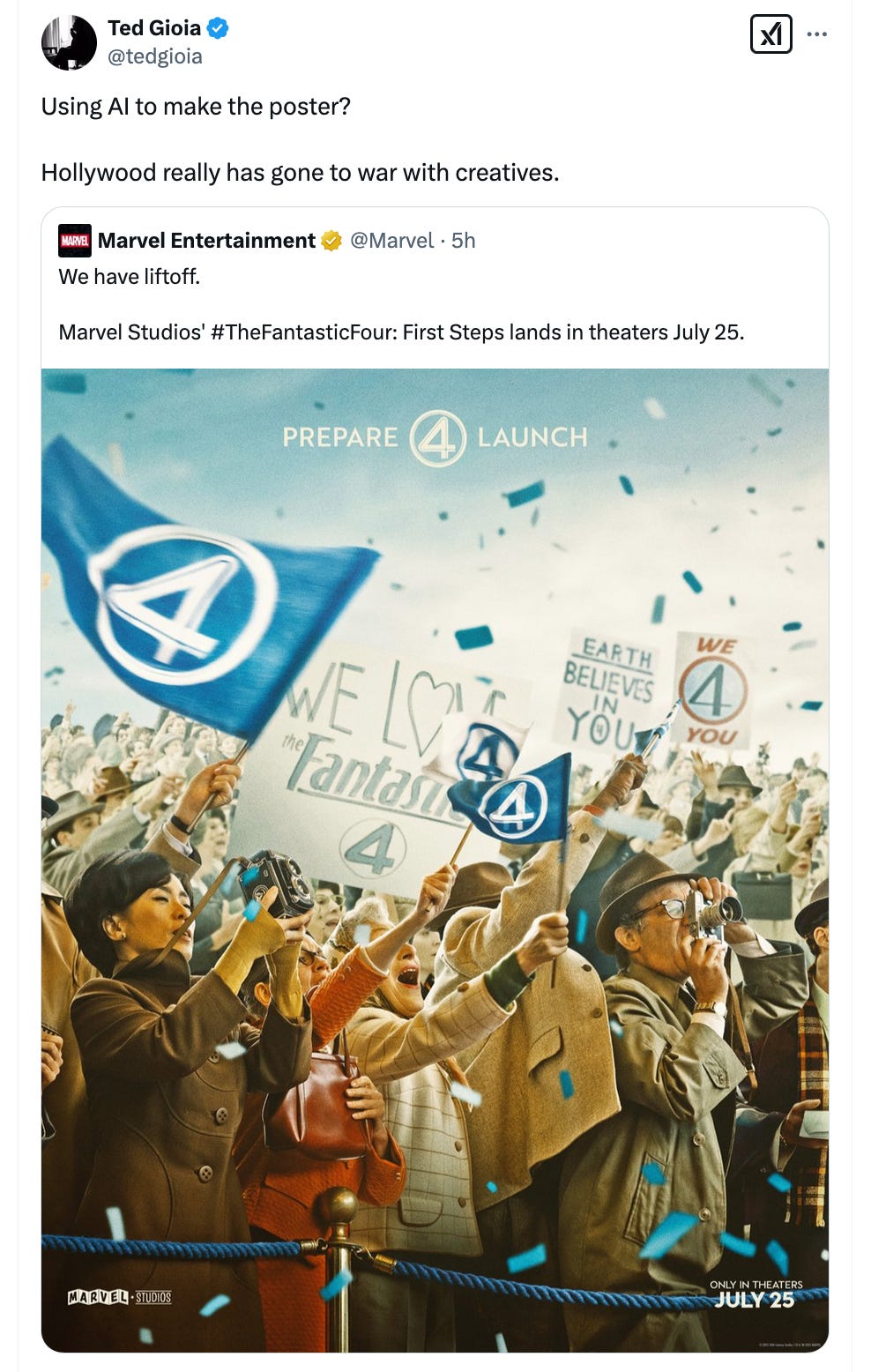If William Shakespeare Came to Hollywood Today...
“The first thing we do is, let's kill all the lawyers.”
William Shakespeare, Henry VI, Part II
They need somebody like Bill Shakespeare in Hollywood today.
That’s not as crazy as it sounds. We know very little about the Bard of Avon, but these facts are indisputable:
He worked successfully in the entertainment business for 30 years.
He mastered the art of the deal—all six of his surviving signatures come from legal documents.
He handled money wisely, as entrepreneur, grain merchant, property owner, money lender, etc.
He still sells tickets today—more than 400 years after his death.
Not even Harvey Weinstein can match that track record.
If you want to support my work, please take out a premium subscription (just $6 per month).
And—best of all—Shakespeare didn’t let business get in the way of creativity. He knew how to make a buck without compromising his Bard status.
Here’s another fact about Shakespeare: He never used the words “intellectual property” or “content” or “brand franchise.”
I was reminded of that recently when I encountered this headline in The Hollywood Reporter.
I’ve often accused the entertainment industry of abandoning creativity—and turning into boring IP [intellectual property] management companies run by lawyers, bankers, and accountants.
But they don’t even hide it anymore.
There was a day when they pretended to care about artistry—seeking out fresh talent and bold new ideas. But today it’s the exact opposite. They actually want content.
(This is where I concur with Barbara Broccoli, who had creative control over the James Bond films until last week. She forced Amazon execs to buy her out, after she called them “fucking idiots.” This outburst happened in response to the head of Amazon Studios describing the Bond films as content.)
So I read the Bain report and wept. So would Shakespeare—he would rage like King Lear on the heath if he saw a sentence like this:
“[Media] companies are essentially themselves converging to compete with the tech media platforms; they’re also acquiring to gain more evergreen IP that can be used across modalities. By owning these cross-sector assets and IP, they create fan communities and multimodal content….”
I thought content was bad enough. But we’re now dealing with multimodal content.
That sounds like one of the seven plagues of ancient Egypt—a step above locusts, but definitely worse than frogs and hail. Somebody at the consultancy deserves to be smote down at bonus time.
FULL DISCLOSURE: I must admit that my personal dealings with the Bain consulting firm have been peculiar ones. They recruited me back in my Stanford Business School days, and the entire experience left me with a very bad taste in my mouth.
If I told you all the details of Ted versus Bain, you wouldn’t believe me. You’d think I was talking about some creepy cult, not a respected professional firm.
But I’m not sharing that story (today).
Instead I’ll simply point out that the entertainment industry proves how clueless it is when it listens to—and pays for!—this multimodal claptrap. It was bad enough when lawyers and accountants were the only grifters in Tinseltown.
Shakespeare never hired a consulting firm. His plays would have disappeared long ago, if he had. Nobody wants to watch A Midsummer Night’s Scalability or Julius CAGR.
Go check out how Bain dealt with Guitar Center. That will tell you how well they manage creativity-driven businesses.
Here’s something else Shakespeare would never do.
I don’t believe people will ever prefer AI over human creativity. But if that day ever arrives, Hollywood disappears. It gets swallowed by Silicon Valley.
Even lawyers, accountants, and consultants should be able to figure that out. And if they can’t, they ought to hand over control to those who can.
“What a piece of work is a man,” declares Prince Hamlet in Shakespeare’s play….
How noble in reason, how infinite in faculty….In action how like an Angel. In apprehension how like a god.
I don’t think the author of that play would say the same about a chatbot.
This worldview is called humanism, and it was the animating spirit of the Renaissance—which gave us a Shakespeare, a Michelangelo, a Leonardo da Vinci. They were also technologists, in their own way, but they grasped that machines must serve people, not the other way around.
In another passage, Shakespeare compares artists to lovers and lunatics. That’s not the attitude of someone who trusts quants or algorithms to make creative decisions.
That’s why, if Shakespeare were alive today, he would go indie. He wouldn’t waste time with studio execs—he would know they are a lost cause.
Instead he would set up an alternative Stratford-on-Avon, perhaps establishing it in a small community theater, or even online. He would be willing to start small, because it’s better to do it his way, even on a tiny scale, rather than play by broken rules imposed by broken rulers.
And he would have confidence that he could build it over time.
Shakespeare did that in his own lifetime—performing in lowly settings before setting up shop in the Globe Theater. He probably acted in inns or even bear-baiting pits during his early career.
We would call that alternative media nowadays.
So my hunch is that if Shakespeare really did visit Hollywood today, he wouldn’t stay long. He would exit stage left in search of a more bearable environment. And if he couldn’t find one, he’d create it himself.
If there are any future Shakesepares out there now, they will do the same. And it’s Hollywood’s loss.
Maybe the execs will figure this out before their time runs out. But that won’t be long—because even multimodal content gets stale very fast.






I’ve read that Netflix often gives writers notes telling them to dumb down their scripts and narrate the action (having the dialogue describe what is happening), so that people can view the movies as “background “.
So Hamlets’ soliloquy would begin:
“To be or not to be, I ask you, the skull of my dear departed friend…”
Quite an improvement, don’t you think?
“He would exit stage left in search of a more bearable environment….” - great allusion (and deep dive) into Shakepeare’s play The Winter’s Tale. Stage direction in Act III: “Exit, pursued by a bear.”